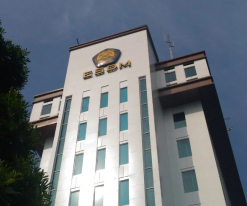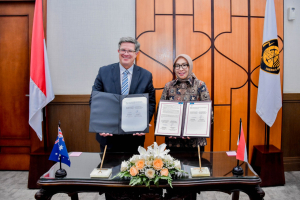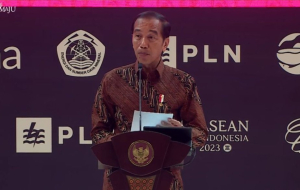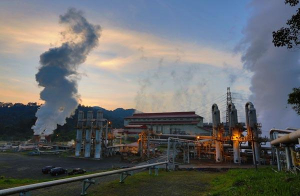Urgent call for revising solar rooftop regulations in Indonesia to boost solar energy capacity
As the investment and installed capacity of solar panels have stagnated over the last decade, some businesses urge the Indonesian government to expedite the finalization of revisions to Regulation of the Minister of Energy and Mineral Resources (ESDM) No. 26/2021 on Solar Rooftop Power Plants (PLTS).
Dion Jefferson, Chief Commercial Officer of SUN Energy, emphasized the need for clear investment and solar panel development rules to provide certainty for industry players and customers.
Additionally, Dion suggested that PT Perusahaan Listrik Negara (PLN), the state-owned electricity company, should accelerate the bidding process for energy transition projects such as Hijaunesia 2023 and dedieselization programs, which are still pending completion by the end of the year.
The delay in these auctions contributes to the current stagnation in increasing solar power plant (PLTS) capacity in the national power system.
The installed solar panel capacity in Indonesia reached only 0.3 gigawatts (GW) by the end of 2022, significantly lagging behind Thailand and Vietnam, which recorded capacities of 3.1 GW and 18.5 GW, respectively.
Indonesia is also falling behind Malaysia, the Philippines, and Cambodia, with capacities of 1.9 GW, 1.6 GW, and 0.5 GW, respectively.
The national power company PLN aims to achieve a solar panel capacity of 5 GW by 2030, as outlined in the Electricity Supply Business Plan (RUPTL) that extends to 2030.
However, McKinsey and Company project that PLN needs to incorporate around 0.7 GW of solar power into the system annually to achieve this goal.
Linus Andor Mulana Sijabat, Chairman of the Indonesian Solar Module Manufacturers Association (APAMSI), criticized PLN for its lack of commitment to increasing installed solar panel capacity in the national power system.
Linus believes that PLN's willingness is diminished, particularly due to oversupply issues resulting from the 35,000-megawatt coal and gas power plant program.
Linus suggested that PLN should open up the solar panel electricity quota for residential consumers to accelerate the stagnant installed capacity.
He argued that easier access to the development of residential solar panels would boost investment and capacity in the PLN system.
Earlier reports indicated that the Cabinet Secretariat (Seskab) returned the draft revision of Regulation of the Minister of ESDM No. 26/2021 on Solar Rooftop Power Plants, requesting the Ministry of ESDM to reassess the financial impact on PLN.
Dadan Kusdiana, Secretary-General of the Ministry of ESDM, confirmed that the revision process would not be hindered by the reassessment, ensuring that only the figures are being verified.
Tag
Already have an account? Sign In
-
Start reading
Freemium
-
Monthly Subscription
30% OFF$26.03
$37.19/MonthCancel anytime
This offer is open to all new subscribers!
Subscribe now -
Yearly Subscription
33% OFF$228.13
$340.5/YearCancel anytime
This offer is open to all new subscribers!
Subscribe now






